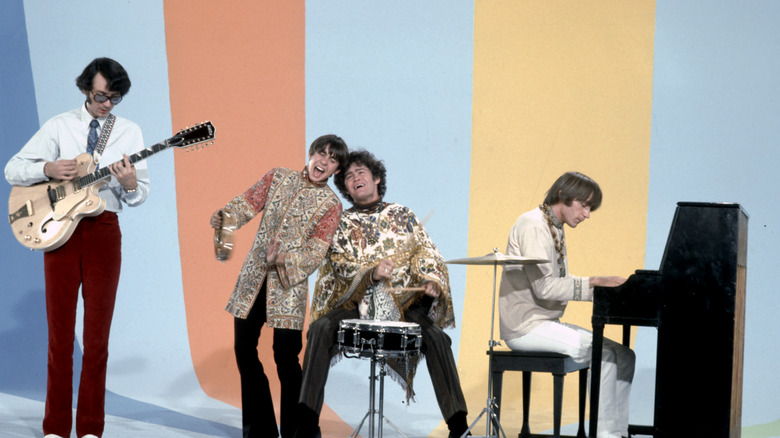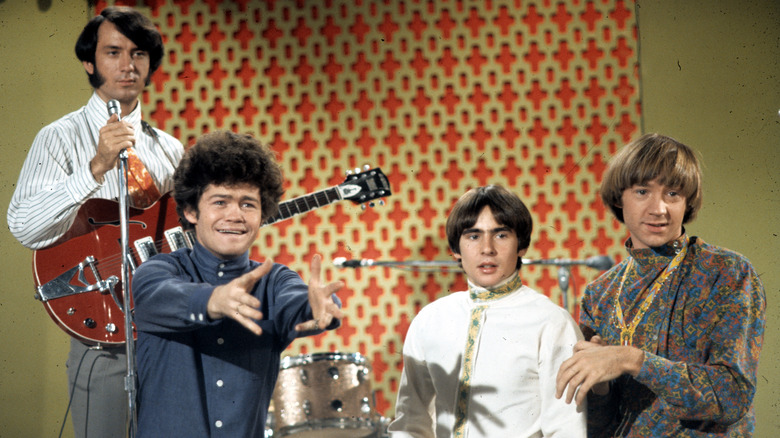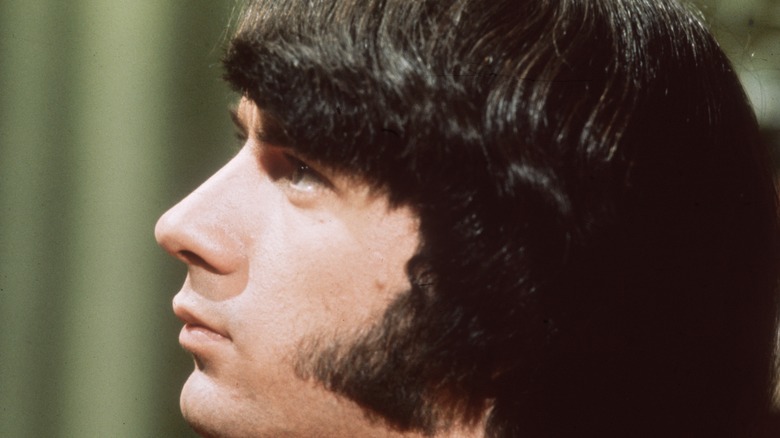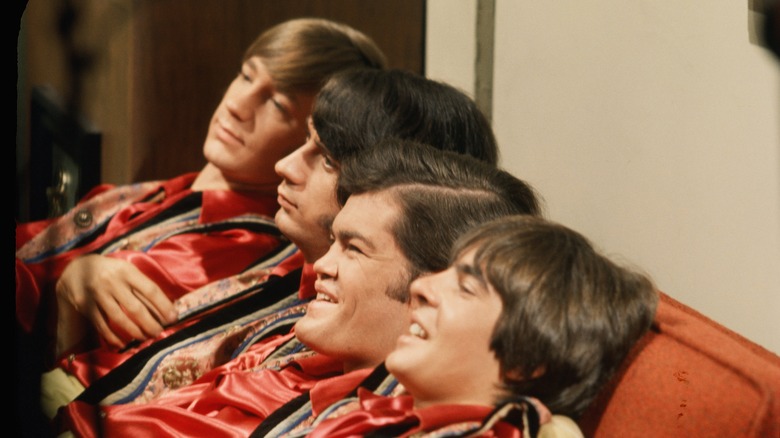Here's Why Michael Nesmith Left The Monkees
In the fall of 1967, The Monkees — on television and on the radio — were a hit. The idea of creating an American TV show that reflected the popularity of The Beatles was a successful one that was bolstered by a number of chart-topping songs and records. The show had earned a reputation as visionary for its innovative filming techniques and even won two Emmy Awards in 1967, including Outstanding Comedy Series. But that all changed a year later. By the end of 1968, the show faltered and was canceled, causing Peter Tork, Davy Jones, Mickey Dolenz, and Mike Nesmith scrambling to figure out what to do next and how they would need to satisfy their contracts with NBC and a number of other companies the band had signed with.
So where did it all go wrong? How could a hit that America loved fall flat on its face in less than a year (especially pre-internet and before social media entered the lexicon)? Well, it depends on which of The Monkees you ask — and at what point over the last 50 years you ask. Some answers lay blame at the feet of the producers of the show. Some of The Monkees blame other Monkees. And yet others say it was all a matter of bad timing. The band eventually went their separate ways, and Michael Nesmith's story of frustration is a good reflection on what it was like.
The Monkees started out not playing their own music
For one, word got out that The Monkees weren't writing their own songs, nor were they performing them on the show even if they were performing them on stage during live shows. Fans were — how shall we say? — not pleased. And the same was true for Nesmith and Tork, who wanted to be writing and performing their own music, but executives were having none of it. For his part, Jones, who came from Broadway and was used to being told when and how to perform, wanted Nesmith and Tork to shut up and do their jobs, per The Daily Mail.
Nesmith found it all to be so strange since they were, contrary to lore at the time, accomplished musicians. "[A]ll of us shared the desire to play the songs we were singing. Everyone was accomplished — the notion I was the only musician is one of those rumors that got started and won't stop — but it was not true," Nesmith told Rolling Stone in 2012. "Peter was a more accomplished player than I by an order of magnitude, Micky and Davy played and sang and danced and understood music. Micky had learned to play drums, and we were quite capable of playing the type of songs that were selected for the show."
The Monkees got their way, sort of
After word got out that The Monkees weren't recording their own songs and were instead relying on session musicians, like the Wrecking Crew, NBC changed gears and gave The Monkees the responsibility of writing and performing much of their own music. "We were also kids with our own taste in music and were happier performing songs we liked — and/or wrote — than songs that were handed to us," Nesmith told Rolling Stone. "It made for a better performance. It was more fun."
But that didn't work so well, either. The Monkees took the show in more of a "hippie" direction and left behind the bubblegum pop American audiences wanted from them. By the time the second season of the show ended in 1968, The Monkees had run out of steam. "We all were very tired, and the show was starting to repeat itself," Nesmith told the Arizona Republic in 2018. "Things like The Monkees show have a specific lifetime, and when it's through, it is through — left for history to assess. It does not, however, ever die."
The Monkees come to an end
For the next two years, The Monkees released more albums, went on tour, and, per The Washington Post, released a movie with a cult following (even if it did bomb at the box office pulling in just over $16,000), called Head. By the time 1970 rolled around, Peter Tork bought himself out of his contract for about $150,000 a year. Nesmith made a similar deal, according to Ultimate Classic Rock. They met their final obligation with a Nerf Ball commercial (via YouTube) that year.
Nesmith went on to explore country rock as a genre by working with his group First National Band. He skipped reunion tours in the 1980s with The Monkees — something he said was a matter of bad timing, but was interpreted more broadly as embarrassment of being associated with the pop group. "Quite the contrary," he told Rolling Stone in 2013. "It was a nice part of the resume. It was fun for me, and a great time of my life. I mean, where do you want be in the Sixties except the middle of rock & roll, hanging out with the scene? London was an absolute blast, and so was L.A. back then. There was so much going on back then."



